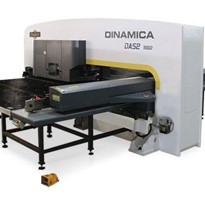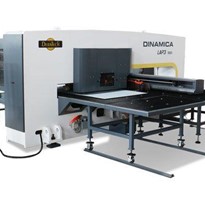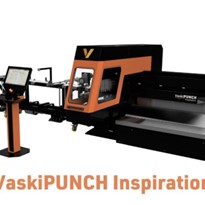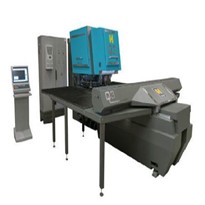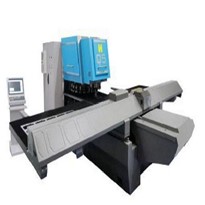Taking the factors below into account will help you make an informed decision when purchasing a metal punching machine that meets your specific needs and production requirements.
Machine Type and Capacity: Determine the type of metal punching machine that suits your requirements. Common types include turret punch presses, hydraulic ironworkers, and CNC punch presses. Consider the machine's capacity in terms of the maximum sheet size, thickness, and hole diameter it can handle.
Production Volume: Assess your production needs to choose a machine that can handle the required volume efficiently. If you have high production demands, a CNC punch press might be more suitable than a manual or hydraulic machine.
Automation and Technology: Modern metal punching machines come with varying degrees of automation and technology integration. CNC (Computer Numerical Control) machines offer precise control and automation features, reducing the need for manual adjustments. Consider the level of automation required for your production processes.
Tooling Options: Check the availability and compatibility of tooling options for the machine. Different tools and dies are used for specific punching tasks, so ensure the machine can accommodate the required tooling for your applications.
Accuracy and Precision: Look for a punching machine that offers high accuracy and precision in punching. This is particularly important if you need to produce complex and intricate parts.
Speed and Cycle Time: The machine's punching speed and cycle time can significantly impact productivity. Balance the speed requirements with the desired accuracy and quality of the finished products.
Safety Features: Safety is paramount when working with heavy machinery. Ensure the machine has appropriate safety features, such as emergency stop buttons, safety guards, and interlocks to prevent accidents.
Maintenance and Support: Consider the ease of maintenance and the availability of support services. A reliable supplier with good after-sales support can be crucial for the long-term efficiency of the machine.
Cost and ROI: Determine the initial investment cost of the machine and calculate the potential return on investment (ROI) based on your production requirements. Factor in the machine's lifespan and estimated maintenance costs.
Energy Efficiency: Energy costs can impact your operational expenses. Look for machines that are energy-efficient to minimize long-term running costs.





-160x160-state_article-rel-cat.png)




-160x160-state_article-rel-cat.png)


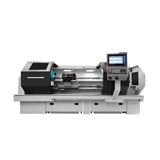

-160x160-state_article-rel-cat.png)




